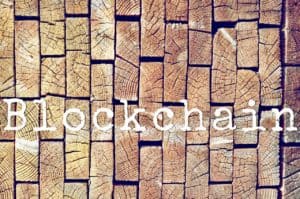 Following a big win at the European Commission in regards to the harmonization of investment crowdfunding rules, the European Crowdfunding Network (ECN) has published a report analyzing European blockchain regulation.
Following a big win at the European Commission in regards to the harmonization of investment crowdfunding rules, the European Crowdfunding Network (ECN) has published a report analyzing European blockchain regulation.
Crafted in partnership with the law firm of Denton’s, the ECN report reviews the European legal framework, including standards, policies, and directives, governing or related to distributed ledger technology (DLT)/ Blockchain solutions and applications.
The report notes that currently there is no legal framework pertaining to interoperability between EU Member States. However, on April 10, 2018, some EU Member States agreed to create the European Blockchain Partnership (EBP) and to establish a European Blockchain Services Infrastructure (EBSI) that seeks to support cross-border digital public services that incorporate high standards of security and privacy.
While the document states there are “no severe legislative gaps and regulatory needs within the existing legal framework of the EU regarding interoperability within the European Union, but given the expectation that DLT/Blockchain utilization will grow, there is a need for regulatory harmonization.
To quote the report:
“Interoperability will be required above all with regard to a technical feasibility of DLT / Blockchain solutions and applications with regard to exchange and interaction with other networks, applications, and technical systems. Also with regard to their compliance with EU-wide technological standard and legal requirements. Different innovative solutions will have to fit the same legal framework and fulfill the same teleological requirements of existing provisions (e.g. Directive 2011/83/EU (consumer rights), Directive 2000/31/EC (e-commerce), Commission Implementing Decision (EU) 2015/1506 (formats of advanced electronic signatures and advanced seals), Commission Implementing Decision (EU) 2015/296 (electronic identification), Commission Implementing Regulation (EU) 2015/1501 (interoperability framework on electronic identification and trust services for electronic transactions) etc.).”
Regarding capital markets, the report indicates that six EU member states have issued some form of a legal framework regarding financial products and services. Of note is that the German Federal Ministry of Justice and Consumer Protection and the Federal Ministry of Finance has issued a draft bill with regard to the implementation of electronic securities. The draft bill is now in the consultation process.
The report is a good round-up of the regulatory status of each EU member state. Clearly, standardization must take place within the securities industry but how any standardization manifests itself over time, and how detailed any requirements will be, remain unanswered. The blockchain/DLT industry is in its infancy and changing rapidly. Any approach that stifles innovation may undermine the benefits of the technology.
You may download the ECN Analysis of Current European Blockchain Regulation here.

